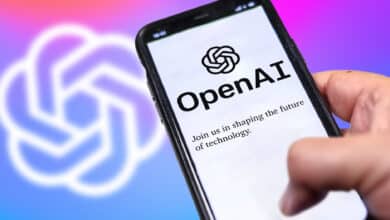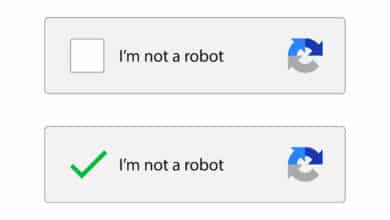
Digital transformation is not just a buzzword, but a survival strategy for companies in today’s world. As part of this transformation, artificial intelligence (AI) is playing a central role, particularly in the form of advanced models such as ChatGPT. AI has now shown that it can do more than just chat cleverly – it is fundamentally transforming customer service, marketing and business processes. So let’s take a look at the application areas in which ChatGPT is transforming the business world in three key areas: Customer Service, Content Creation and Process Automation.
ChatGPT transforms application areas in the business world
The versatility of ChatGPT enables a wide range of applications that go far beyond simple question-and-answer interactions. Companies are using AI to automate tedious tasks, personalize the customer experience and optimize internal processes. AI not only offers support in direct customer contact by providing fast and precise answers, but also helps to analyze large amounts of data in order to gain valuable insights and make strategic decisions.
In the following, we take a look at the various areas of application in which ChatGPT is or can be used to optimize processes, increase efficiency and create unique customer experiences. Whether it’s developing new marketing strategies, increasing customer loyalty or boosting productivity, ChatGPT is proving to be a valuable tool in the arsenal of modern businesses.
Would you like to gain a brief insight into how ChatGPT and similar technologies work? Then we recommend taking a look at the article: Understanding the technology behind ChatGPT – how AI works.
1. ChatGPT in customer service
One of the most obvious areas of application for ChatGPT in the business world is customer service. In this dynamic field, the ability of AI to understand and respond to natural language has ushered in a new era of interaction between companies and customers. ChatGPT enables companies to make their service more efficient, accessible and customer-centric. It automates basic support requests and provides personalized advice around the clock. By taking over repetitive and time-consuming tasks, ChatGPT frees up customer service agents to focus on more complex and valuable interactions. This not only reduces workload, but also increases customer satisfaction through fast and accurate responses.
Automation of customer support
By taking on recurring and predictable requests, ChatGPT allows customer service teams to focus on more complicated cases that require human intervention. This leads to better resource allocation and increased overall satisfaction for both customers and employees.
Some concrete examples illustrate the impact of ChatGPT in customer support:
- An online retailer could use ChatGPT to automatically handle inquiries about order status and shipping options.
- Airlines could use the technology to resolve common questions about flight changes and baggage policies.
- Telecommunications companies can optimize their support by using AI like ChatGPT to answer questions about contract details and rate options.
- Software providers could use ChatGPT to automate technical support and troubleshooting.
- It is also conceivable that financial service providers could offer their customers round-the-clock advice on account issues through a ChatGPT-based service.
These examples show how ChatGPT can help make customer service more efficient and responsive by providing quick answers while adding a personal touch.
Self-service options through FAQ bots
Compared to traditional FAQ pages, FAQ bots based on ChatGPT offer a more dynamic and interactive way of providing information. While users often have to laboriously search for answers on static pages, FAQ bots enable direct and personalized interaction. They answer queries in real time without the user having to navigate through lists or categories.
Some key differences and advantages at a glance:
- FAQ bots provide immediate answers to direct user queries, making it much easier to access information.
- Unlike the generic answers provided by FAQ pages, FAQ bots can provide personalized and contextual information based on the user’s individual needs and previous interactions.
- FAQ bots learn from every interaction, continuously improve their answers and adapt to the user’s needs.
By integrating FAQ bots into their online presence, companies are able to create a more proactive and customer-centric service offering. For example, an e-commerce company could use an FAQ bot to answer customer questions about product details or the ordering process, while a service provider could use the bot to resolve common queries about service options or appointment bookings.
Personalization of customer interaction
As mentioned above, ChatGPT does not rely on standardized responses, but enables customized communication that is specifically tailored to the individual customer. This ability to learn from past interactions, preferences and behaviors enables companies to offer their customers exactly what they need – often even before they know it themselves.
ChatGPT and similar AI systems can be used to make personalized recommendations to customers. These are based not only on what someone has bought in the past, but also on how someone navigates the website and interacts with customer service. For example, if someone often searches for environmentally friendly products, ChatGPT can specifically suggest information and offers on these products. This makes the offers more relevant and interesting for the customer.
ChatGPT is also used in the financial sector to provide personalized financial advice. Customers receive advice tailored to their personal situation, be it savings tips, investment suggestions or budget management advice. This type of personalized interaction strengthens trust and loyalty to the financial institution by showing customers that their individual needs and goals are being taken seriously.
The implementation of ChatGPT for personalized customer interactions exemplifies the trend towards a customer-centric approach. This is based on understanding and responding to the individual needs of each person. Companies across different industries are adapting the technology to open a new chapter in customer communication. This chapter is characterized by higher satisfaction and stronger customer loyalty.
2. ChatGPT in marketing
Imagine if marketing messages were fine-tuned to meet the individual needs and interests of each customer. ChatGPT makes this possible through its ability for in-depth data analysis and personalized content creation. From email campaigns that speak directly to the recipient to blog posts that are tailored to the exact interests of the readership, ChatGPT gives marketers the tools to make their messages more resonant and relevant than ever.
In addition, ChatGPT’s advanced analytics capability allows for precise evaluation of customer behavior and preferences in the business world. These insights enable the agile adaptation of marketing strategies in real time, which not only increases the effectiveness of campaigns, but also lays the foundation for deeper customer loyalty.
The introduction of ChatGPT in the marketing world marks nothing less than the beginning of a new era of communication. In times when consumer attention is extremely precious and elusive, ChatGPT offers a unique opportunity: every encounter with the target group becomes a real dialog, an interaction with depth.
Content creation: Using ChatGPT in the business world for creative content
The integration of ChatGPT into the content creation process revolutionizes marketing through the automation and personalization of text generation. This technology allows you to respond quickly to market changes by delivering relevant and engaging content across multiple platforms. Although ChatGPT offers an impressive range of applications, the personal touch and accuracy of the information is crucial to creating authentic and valuable content. Therefore, companies should carefully review and, if necessary, customize the content generated by ChatGPT to ensure that it reinforces brand identity and effectively engages the target audience. Finding the balance between automated efficiency and human creativity is key to successful marketing strategies.
Some examples of where ChatGPT can be used in marketing include:
- Creating blog posts on industry-specific topics.
- Generating advertising copy that inspires action.
- Production of newsletters that inform customers about news.
- Developing FAQ content to answer common customer questions.
- Writing and refining product descriptions that highlight the uniqueness of a product.
- Developing creative scripts for video content or podcasts.
Despite the wide range of uses, it is important that the content created by ChatGPT is checked for veracity – especially in the business world. It should also be enriched with a brand voice to create a genuine connection with the audience and maintain the integrity of the brand.
Customer engagement: improving interaction through personalized communication
ChatGPT’s role in marketing also extends to increasing customer engagement through personalized communication. With ChatGPT’s ability to learn from customers’ previous interactions, behavior and preferences, marketers can create messages that not only grab attention but also inspire action.
The personalized communication enabled by ChatGPT is instrumental in increasing engagement by:
- Initiating a dialog that feels genuine and appreciative.
- Providingrelevant content based on the customer’s interests.
- Strengthening customer loyalty by showing that the company takes its customers’ needs seriously.
- Promotes brand loyalty through regular and meaningful interactions.
Effective customer engagement goes beyond simply communicating sales messages. It builds on understanding and fulfilling customers’ specific wants and needs, which is supported by ChatGPT’s adaptability and willingness to learn. By providing personalized and relevant content, companies can build a stronger and lasting relationship with their target audience.
ChatGPT drives customer engagement in marketing through personalized communication, increases customer satisfaction and strengthens brand loyalty by enabling companies to stand out from the competition through tailored content.
Market research: Using ChatGPT in the business world for data analysis and trend recognition
ChatGPT extends its role beyond customer communication and content creation into market research. Its ability to sift through large data sets and identify trends provides companies with valuable insights into customer behavior and market dynamics. Such data-based insights are essential for making informed strategic decisions and can be crucial for gaining a market advantage.
Using ChatGPT to analyze data and identify trends enables marketers and decision makers to do the following:
- By analyzing interaction data, ChatGPT can help to better understand customer needs and wants and develop targeted marketing strategies based on this.
- ChatGPT can help identify emerging trends early on by analyzing public discussions, search queries and other relevant data. This enables companies to react quickly to changes and position themselves as pioneers in their industry.
- By evaluating information about competitors and their offerings, companies can adapt and optimize their own strategies to strengthen their market position.
ChatGPT is increasingly being used in market research, particularly in the systematic analysis of customer feedback and reviews. This approach provides crucial insights for the continuous optimization of products and the development of new, needs-based offers. ChatGPT’s capacity to efficiently process large amounts of data and derive specific recommendations for action from it establishes it as an indispensable tool. It enables companies to refine their decision-making processes and adapt their strategies specifically to changing market and customer requirements.
3. Optimization of business processes with ChatGPT
ChatGPT’s ability to analyze complex data and communicate in natural language has not only made waves in the areas of customer service and marketing, but also offers extensive opportunities for optimizing business processes. Companies are often faced with the challenge of increasing efficiency, reducing costs and improving the quality of their services and products at the same time. This is exactly where ChatGPT comes in, redesigning business processes through automation, improved data analysis and decision support.
By implementing ChatGPT, companies can automate repetitive and time-consuming tasks. This leads to a significant reduction in workload and an increase in productivity. ChatGPT’s advanced analytics capability also enables a deeper insight into business data. This contributes to better informed decisions and more effective strategy development.
The integration of ChatGPT into business process optimization marks a significant advance in the way businesses operate. It enables a more agile, data-driven way of working that not only improves internal processes, but also optimizes the customer experience.
Internal communication via ChatGPT: Use in teams and project management in the business world
At a time when teams are increasingly decentralized and efficient coordination and communication are crucial, ChatGPT offers a solution. It facilitates the exchange of information between team members and optimizes project management processes. With the ability to automate tasks and make relevant information quickly accessible, ChatGPT helps to improve workflows.
By using ChatGPT in internal communication, teams can, among other things:
- Access information faster by submitting simple requests to the bot instead of manually searching through documents or emails.
- Communicate more efficiently as ChatGPT can act as a central hub for requests, reducing the need to interrupt colleagues for basic information.
- Improve documentation by automatically logging and organizing discussions and decisions, creating a sustainable knowledge base.
In project management, ChatGPT:
- Automate routine tasks such as updating project status reports or assigning tasks based on predefined rules.
- Improved project planning and monitoring by analyzing project progress and identifying risks or delays at an early stage.
- Personalized reminders and updates for team members to ensure deadlines are met and tasks are completed on time.
The integration of ChatGPT into internal communication and project management processes leads to a more agile, informed working environment. Teams can act faster, collaborate more effectively and ultimately be more productive.
Automation of routine tasks: Examples of increased efficiency
With ChatGPT, companies can automate everyday tasks and thus significantly improve their operational efficiency. Manual processes that previously took a lot of time can be simplified or completely automated.
Specific examples of routine tasks that can be automated include
- As already alluded to, ChatGPT can be used to answer frequently asked questions from customers immediately, without the need for an employee to intervene. This frees up the customer service team and allows them to focus on more complex issues.
- Periodic reports on sales figures, website traffic or customer feedback can be generated automatically, reducing the workload of analysts and managers.
- ChatGPT can help sort incoming emails, prioritize them and even write pre-formulated responses to common queries.
- The AI can schedule appointments, coordinate participants and send automatic reminders to simplify the organization of meetings and events.
- ChatGPT can be used to keep customer data, inventory lists or other company databases up to date by recording and updating changes.
By integrating ChatGPT in the business world in these areas, companies can save time and resources. At the same time, they increase the satisfaction and motivation of their employees by minimizing monotonous tasks. Practical examples illustrate the wide range of applications of ChatGPT in the automation of routine tasks.
Support for decision-making: Data-based insights and strategy development
The role of ChatGPT in market research is expanding to directly support decision-makers in strategic planning and implementation. This technology makes it easier to sift through mountains of data to quickly respond to relevant market trends and identify customer preferences in a timely manner. The resulting insights are crucial for making informed decisions.
ChatGPT enables managers to plan resources in a targeted and effective manner, whether in production to avoid bottlenecks or in team management to optimize the distribution of tasks. This support not only boosts efficiency, but also increases the flexibility and future viability of companies.
The integration of ChatGPT into the decision-making process underlines its importance for modern companies. It’s not just about reacting to change, but proactively seizing opportunities and setting the course for future success.
Challenges of using ChatGPT in the business world
There are various challenges when using ChatGPT in business, particularly in the areas of data protection, compliance and implementation. These issues require careful consideration to realize the full benefits of the technology while adhering to regulatory frameworks and overcoming operational obstacles.
Data privacy and regulatory compliance take center stage when implementing technologies like ChatGPT. Companies are obliged to strictly follow data protection rules, such as those set out in the GDPR. This includes limiting the collection to necessary data and clearly communicating how this data is handled. It also includes implementing security measures and often obtaining direct consent for data processing. Furthermore, specific industry-related regulations may need to be observed, which increases the need for additional compliance verification measures.
Companies also face challenges when implementing ChatGPT as part of their business processes. The implementation of new technologies such as ChatGPT can encounter challenges, including technical limitations or reservations on the part of employees. For a successful integration, it is essential to understand the technology thoroughly and get the team on board with targeted training. Pilot projects provide an excellent opportunity to demonstrate the practical benefits of ChatGPT and similar models while gaining valuable feedback for customization.
Carefully navigating through these challenges is essential for organizations to successfully leverage ChatGPT. This requires a balanced strategy that takes data privacy and compliance seriously, plans the implementation carefully and takes the entire organization on the journey of digital transformation.
ChatGPT in tomorrow’s business world – staying on the ball
This article only gives a small insight into what is possible with ChatGPT. What is clear is that ChatGPT and other similar models are turning the business world on its head by simplifying processes and improving customer communication. We are only at the beginning of a development that will expand the possibilities for companies to work efficiently and innovatively. In the future, ChatGPT could take on even more complex tasks and open up new fields of application, from strategic planning to product development.
The key takeaway is that companies that embrace ChatGPT and similar technologies now will gain a significant advantage. They not only improve internal processes and customer satisfaction, but also strengthen their competitive position.
It is therefore essential for companies and experts to actively explore the potential of artificial intelligence. The willingness to test and use new technologies can lay the foundation for future success. The digital transformation with ChatGPT is an opportunity to sustainably shape and advance the business world.



